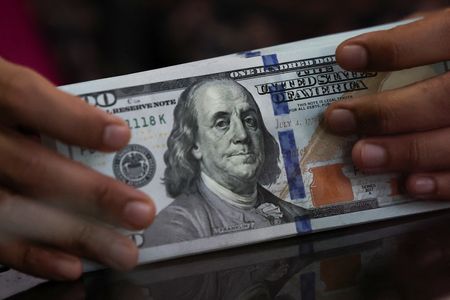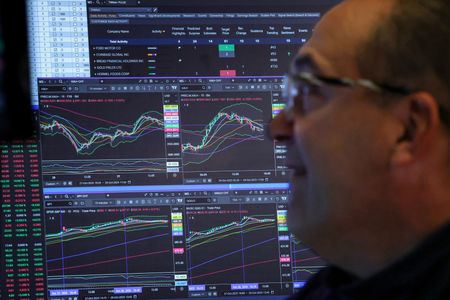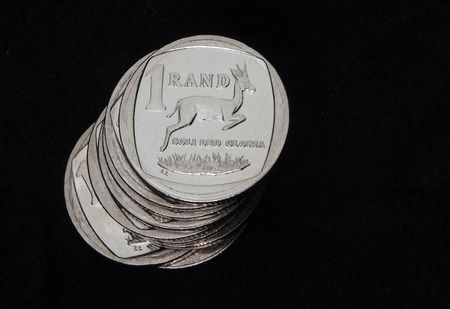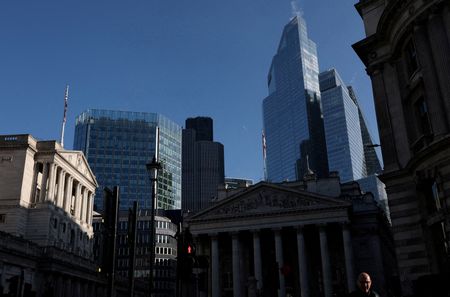By Hannah Lang and Stefano Rebaudo
(Reuters) -The U.S. dollar was set to end the week roughly unchanged on Friday as investors sought to balance the Federal Reserve’s hawkish tilt against lingering concerns over the U.S. economy.
Meanwhile, investors were assessing the fallout from data that sounded an alarm bell for the global economic outlook: Chinese exports unexpectedly fell in October, recording their steepest drop since February, after months of frontloading U.S. orders to dodge tariffs.
The greenback started a five-day winning streak last week after U.S. Federal Reserve Chair Jerome Powell acknowledged the risky nature of further easing moves, but it dropped sharply on Thursday on soft labor data.
U.S. Treasury yields were also flat on Friday, after falling the day before on economic uncertainty caused by the extended government shutdown in Washington and questions over the legality of President Donald Trump’s tariffs.
“With the December Fed meeting more or less a coin toss which crucially depends on the labor market picture, the market is overreacting to any hints about the (U.S.) labor market,” said Mohit Kumar, an economist at Jefferies, noting the lack of economic data as the government shutdown continues.
“Our view remains that Powell’s comments from the last FOMC meeting suggest that the bar for a December cut is high,” he added.
The euro rose 0.35% against the dollar to $1.15868, outperforming other European currencies such as sterling and the Swiss franc.
The euro is drawing support from expectations of a steady policy rate, while both the U.S. and the UK are expected to cut rates further in 2026.
However, Chinese data suggests Beijing may have struggled to diversify exports away from the U.S., a trend that could stoke fears of mounting Chinese pressure on European markets.
With the shutdown postponing the release of the monthly non-farm payrolls report, traders have turned to private sector data which showed the economy shed jobs in October in the government and retail sectors. Cost-cutting and the adoption of artificial intelligence also led to a surge in layoffs.
Barclays forecast earlier this week a 60% chance that the U.S. government shutdown – the longest in U.S. history – would end between November 11 and 21, while assigning a 15% probability that it could extend into December.
The dollar index, which measures the currency’s strength against a basket of six peers, was down 0.24% at 99.443. It has recovered some strength but remained lodged within the same trading range it has sat in since August.
A rush into safe-haven assets earlier this week supported the U.S. dollar, which has regained some of its safe-haven appeal, analysts said, even as the Japanese yen emerged as the market’s preferred defensive play.
Tech-heavy stock markets were heading for their biggest weekly falls in seven months, adding to market anxiety.
The dollar rose 0.06% against the yen to 153.12, after hitting 152.82 earlier in the session, its lowest level since October 30.
The rate outlook is not going to help much as investors expect the Bank of Japan to take time before hiking again.
“If the BoJ does not move in January, there may be no rate hike likely until the new fiscal year and consequently interest rates may be stuck at 0.5% until next May, even with inflation remaining at 3%, where it has been on average for more than three years now,” said Mark Dowding, BlueBay CIO at RBC BlueBay Asset Management.
(Reporting by Hannah Lang and Stefano Rebaudo; Editing by Emelia Sithole-Matarise, Kim Coghill and Louise Heavens)










